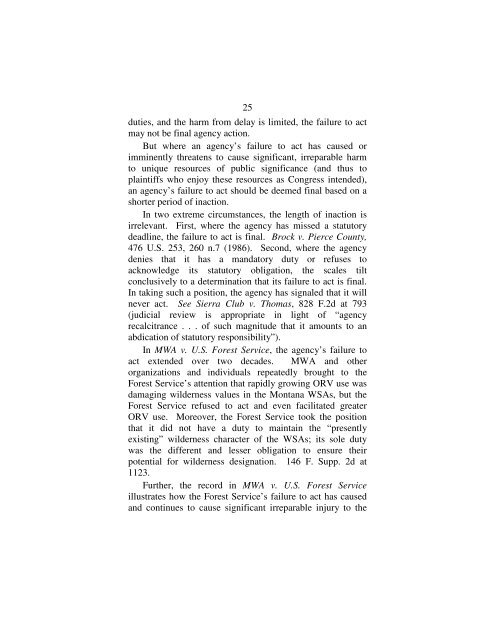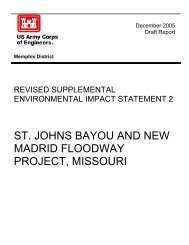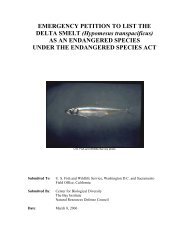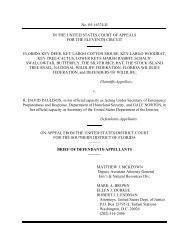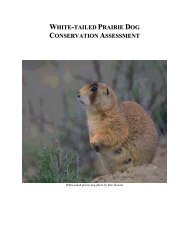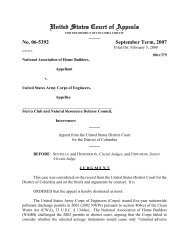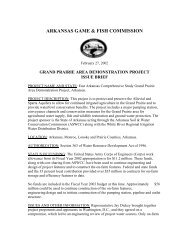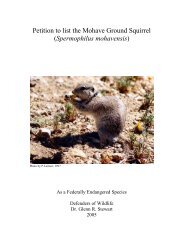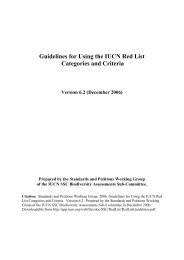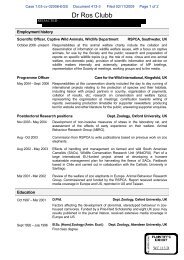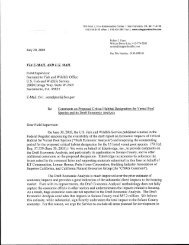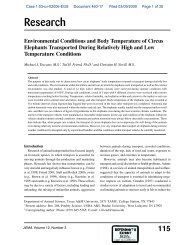Brief Amicus Curiae Of Montana Wilderness Association In Support ...
Brief Amicus Curiae Of Montana Wilderness Association In Support ...
Brief Amicus Curiae Of Montana Wilderness Association In Support ...
Create successful ePaper yourself
Turn your PDF publications into a flip-book with our unique Google optimized e-Paper software.
25<br />
duties, and the harm from delay is limited, the failure to act<br />
may not be final agency action.<br />
But where an agency’s failure to act has caused or<br />
imminently threatens to cause significant, irreparable harm<br />
to unique resources of public significance (and thus to<br />
plaintiffs who enjoy these resources as Congress intended),<br />
an agency’s failure to act should be deemed final based on a<br />
shorter period of inaction.<br />
<strong>In</strong> two extreme circumstances, the length of inaction is<br />
irrelevant. First, where the agency has missed a statutory<br />
deadline, the failure to act is final. Brock v. Pierce County,<br />
476 U.S. 253, 260 n.7 (1986). Second, where the agency<br />
denies that it has a mandatory duty or refuses to<br />
acknowledge its statutory obligation, the scales tilt<br />
conclusively to a determination that its failure to act is final.<br />
<strong>In</strong> taking such a position, the agency has signaled that it will<br />
never act. See Sierra Club v. Thomas, 828 F.2d at 793<br />
(judicial review is appropriate in light of “agency<br />
recalcitrance . . . of such magnitude that it amounts to an<br />
abdication of statutory responsibility”).<br />
<strong>In</strong> MWA v. U.S. Forest Service, the agency’s failure to<br />
act extended over two decades. MWA and other<br />
organizations and individuals repeatedly brought to the<br />
Forest Service’s attention that rapidly growing ORV use was<br />
damaging wilderness values in the <strong>Montana</strong> WSAs, but the<br />
Forest Service refused to act and even facilitated greater<br />
ORV use. Moreover, the Forest Service took the position<br />
that it did not have a duty to maintain the “presently<br />
existing” wilderness character of the WSAs; its sole duty<br />
was the different and lesser obligation to ensure their<br />
potential for wilderness designation. 146 F. Supp. 2d at<br />
1123.<br />
Further, the record in MWA v. U.S. Forest Service<br />
illustrates how the Forest Service’s failure to act has caused<br />
and continues to cause significant irreparable injury to the


